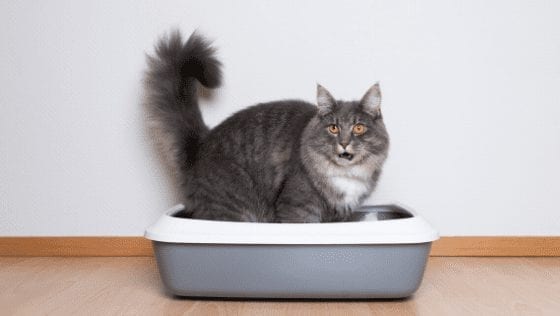When you have a cat at home, litter box duty is something that you have to take seriously. Training your pet cat to use it is just about as important as feeding them. No one wants to come home to an unpleasant (smelly) surprise in their living rooms or worse the bedroom. So what will you do when cat litter box problems happen?
While felines are finicky animals when it comes to cleanliness, at least 10% of all them will develop elimination problems. Some manifest litter box aversion early on; others, years after they’ve been successfully urinating or defecating in the box.
Reasons For Cat Litter Box Problems
Cat Preference
- Surface: Cats are hunting creatures; their senses of touch and smell are incredibly keen. These sensitivities may influence their reaction to their litter box. They can become accustomed to a specific litter feel or scent and decide that they cannot use any other type.
- Location: Much like humans and dogs, cats can also develop a preference in where they do their “business”. Cat litter box problems may happen when you suddenly move the box and place it in an area where there’s too much going on, such as foot traffic, noise, children playing.
Negative Experience Association
If something upsetting happened to your cat while previously using the litter box, you may observe that now they quickly leave as soon as they enter it. Your cat associates the litter box with the bad experience in the past, and understandably, your precious pet does not want to relive it.
Dirty Litterbox
As a pet parent, you have to make sure you maintain the litter box’s cleanliness. An unkempt box will end up repelling your cat, and you as well. You also run the inevitable risk of an unpleasant smell lingering in your home.
Litter Box Features
What the litter box looks like and how convenient it is for your cat to use it can also be the reason for elimination problems.
For example, if the litter box is:
- Too small or too cramped
- Too deep
- Made with rough materials and have liners or hoods that make them uncomfortable
Stress
Events or any changes happening within the household can cause stress in cats, resulting in having litter box aversion.
Example of Stressors in Cats:
- Adding a new pet the home
- Moving houses
- A new member of the household
- Conflict with other cats
Illness
Some underlying medical conditions can cause your cat to miss urinating or defecating inside the box. Observe and check if they have the symptoms of these illnesses and take them to the vet as necessary.
- Urinary Tract Infection
- Kidney Stones or Disease
- Feline Interstitial Cystitis
Tips To Resolve Cat Litter Box Problems
- Stick with the type of cat litter they prefer.
- Regularly change the litter and clean the litter box.
- Avoid putting a soft rug beside the litter box as they may find the feel of the material much better.
- Change the litter box if it’s too small for your cat.
- Place multiple litter boxes in the home.
- Do not use litter box lids and liners.
- Move the box to a quiet place where there are fewer people who can see them. Cats like privacy too!
Once your cat avoids the litter box, observe if it will happen again. Determine the reason so you can immediately resolve it to prevent it from becoming a chronic issue. Speak with your vet if your furry friend continues to manifest the signs of the cat litter box problems.
You can read more kitty blogs HERE.


